Latest Blog Posts
-
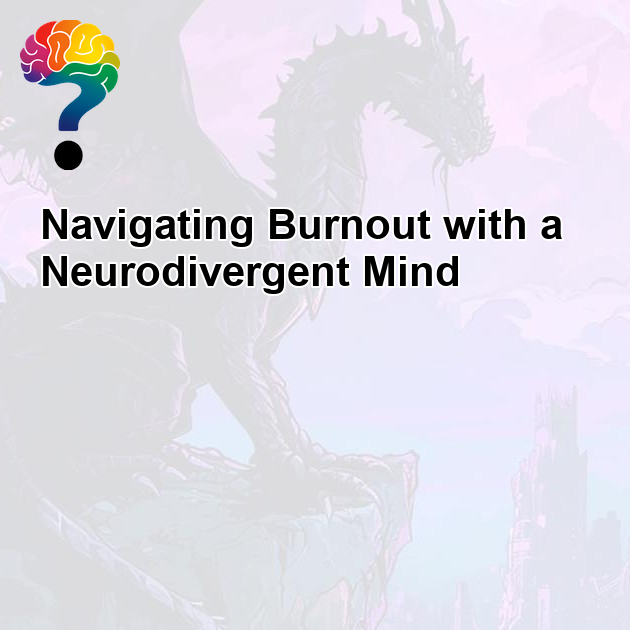
What Burnout Looks Like in a Neurodivergent Brain
Burnout for neurodivergent folks often brings unique challenges that require understanding and tailored approaches. Find out how to recognize and manage these distinct experiences effectively.
-
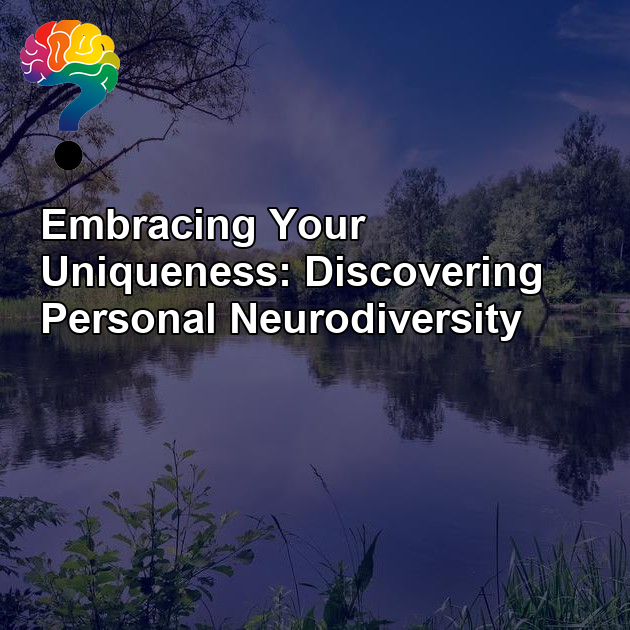
The Moment You Realise Everyone Else Isn’t Masking
Realizing you are different often comes from a deep understanding of your own unique ways of thinking and behaving, which might not always match up with what's typically expected. This realization is a powerful step towards embracing who you are and finding your tribe.
-

Discover the Magic of Body Doubling: A Simple Path to Enhanced Focus
Body doubling is a simple yet powerful method where two people work alongside each other, each on their own tasks, creating a supportive space that enhances focus and motivation.
-
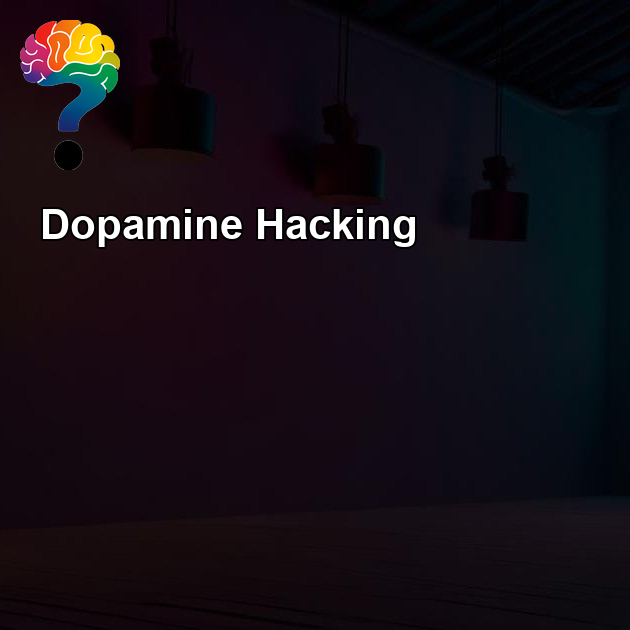
Unlocking Joy: Embrace Dopamine Hacking for a Happier You
Dopamine hacking involves simple, natural strategies to elevate your brain's dopamine levels—boosting your mood and enhancing your happiness.
-

Unlock Your Potential with Executive Function Coaching
Executive function coaching offers personalized support to enhance your skills in task initiation, prioritization, organization, and time management, all tailored to your unique way of thinking.
-
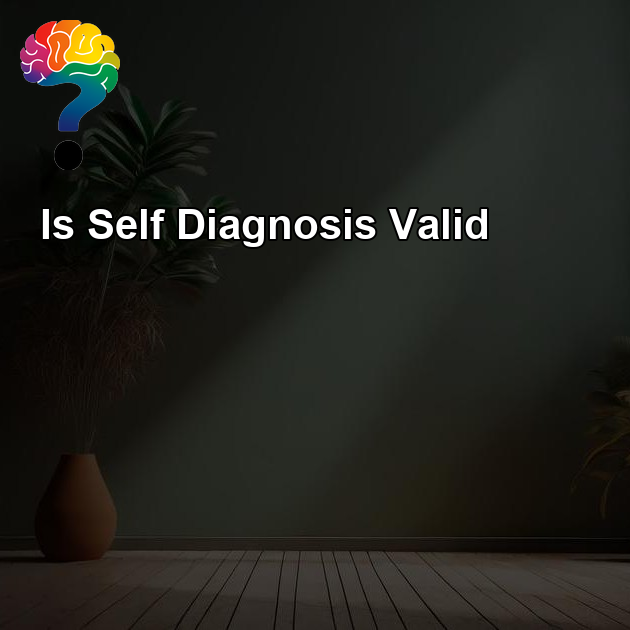
Is self-diagnosis valid?
While self-diagnosis might provide some initial insights, it's not as comprehensive or reliable as a professional diagnosis. It's often a first step many take before reaching out for professional guidance.
-
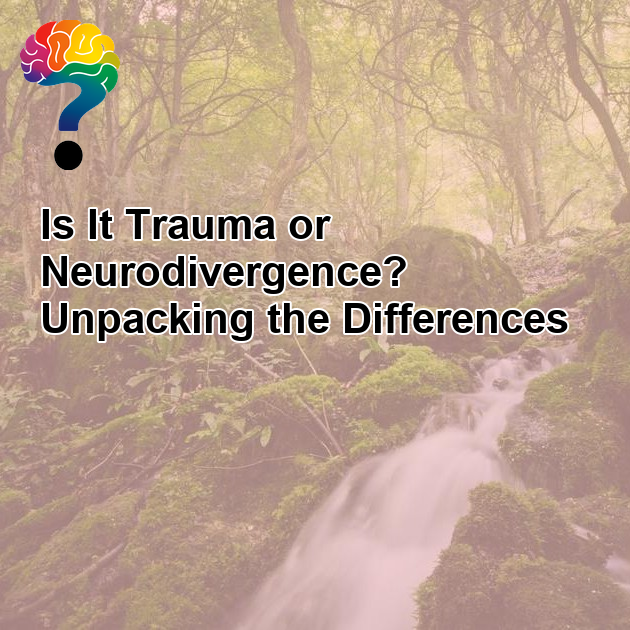
Is It Trauma or Neurodivergence? Unpacking Differences
Understanding the difference between trauma responses and neurodivergent traits can be complex. While trauma affects how we respond to stress, neurodivergence is about how our brains are naturally wired. Both can co-exist and influence each other.
-
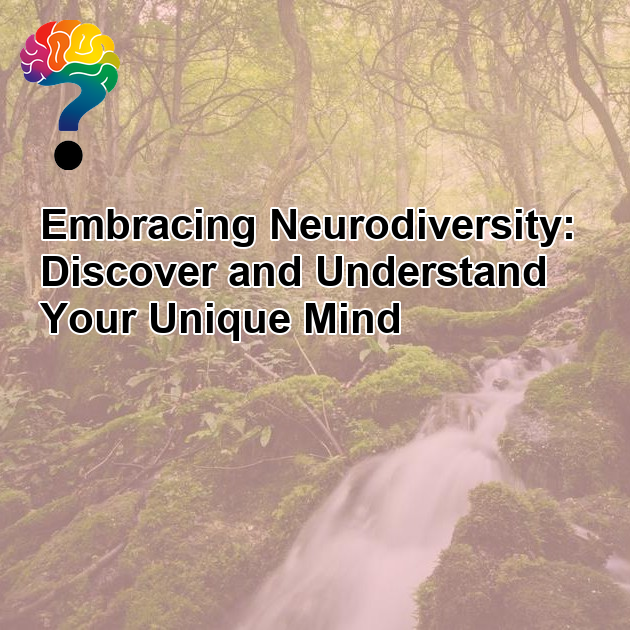
Neurodivergence ≠ disability for everyone, but can be
Understanding yourself isn't about fixing something; it's about embracing and supporting the unique aspects of how you think and interact with the world. Neurodiversity is about recognizing and appreciating these differences as natural variations of the human mind.
-
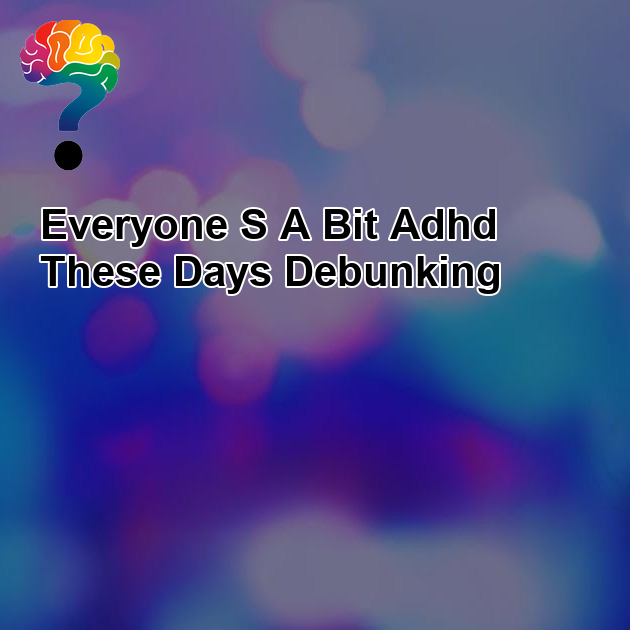
“Everyone’s a bit ADHD these days” (debunking)
The phrase 'everyone's a bit ADHD these days' is a common misunderstanding. ADHD, or Attention Deficit Hyperactivity Disorder, is not just about being occasionally distracted or overly energetic; it involves specific, persistent patterns that affect daily life and requires a formal diagnosis.
-
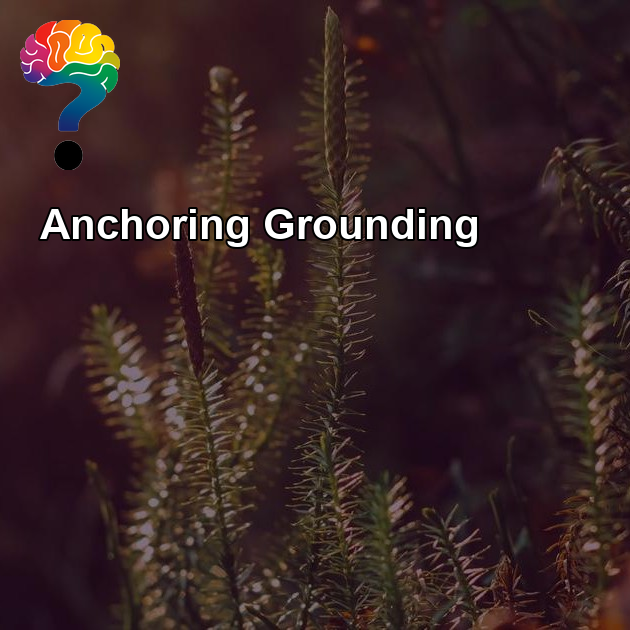
Discover the Warmth of Anchoring: Ground Yourself in the Moment
Anchoring or grounding techniques are simple, soothing methods that draw you back to the present moment, offering a refuge from anxiety and a step towards greater mindfulness.
-
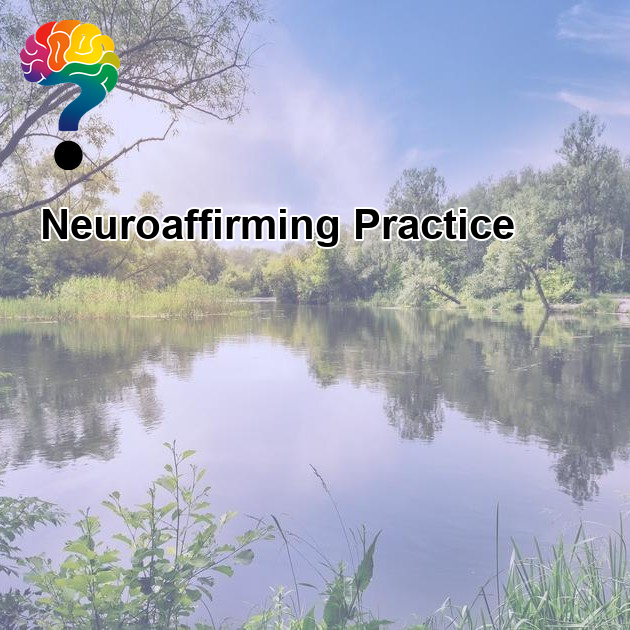
Embracing Neuroaffirming Practice: Journey Inclusivity
Neuroaffirming practice embraces approaches that validate and support the unique experiences of neurodiverse individuals, creating a nurturing and inclusive environment.
-
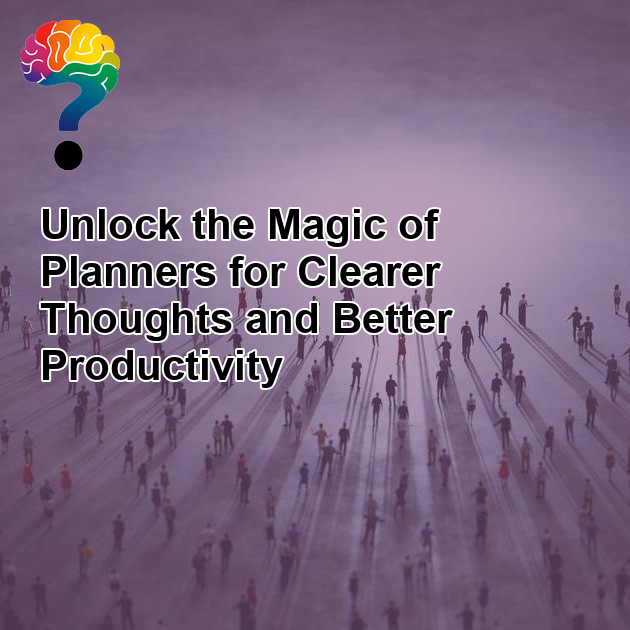
Unlock the Magic of Planners for Clearer Thoughts and Better Productivity
Planners are more than just scheduling tools; they're your partners in taking those bustling thoughts and laying them out clearly on paper, which not only clears your mind but also energizes your productivity.
-

Embracing Inclusivity: Making Reasonable
Reasonable adjustments in UK workplaces are thoughtful changes designed to empower employees with disabilities, enabling them to thrive. This can include adapting the physical workspace, offering specialized equipment, or flexible work schedules.
-
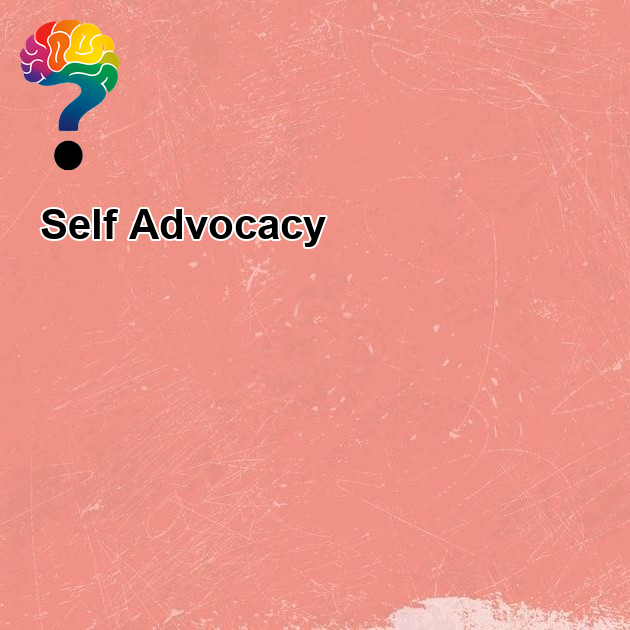
Unlock the Power of Self-Advocacy: Empower Your Voice Today
Self-advocacy is about effectively voicing your needs and rights across various environments to ensure you're treated fairly and can achieve your personal and professional dreams.
-
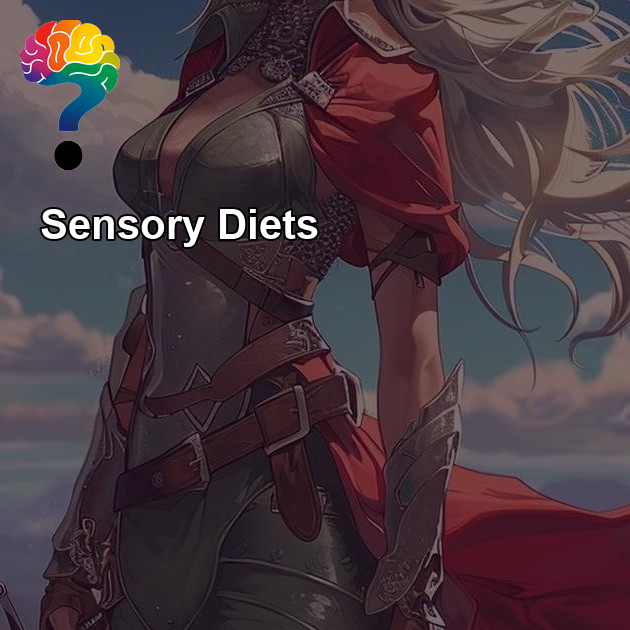
Unlocking Magic Sensory Diets: Warm, Supportive Guide
A sensory diet is a personalized set of activities crafted to support the unique sensory needs of individuals, particularly beneficial for those navigating sensory processing challenges.
-
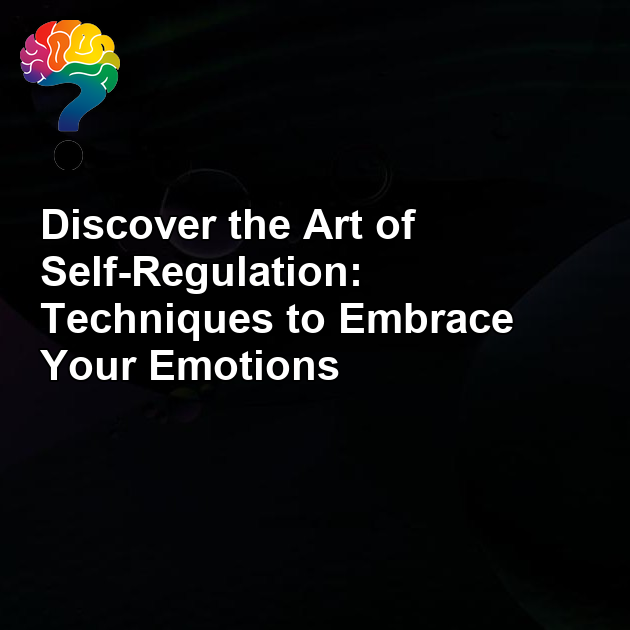
Discover Art Self-Regulation: Techniques Embrace
Self-regulation is about guiding your behavior, emotions, and thoughts to achieve your dreams. Key techniques include embracing clear goals, practicing mindfulness, and cultivating emotional awareness.
-

The diagnostic process (UK context)
In the UK, the journey to understanding your health typically starts with a conversation with a healthcare professional, followed by personalized assessments, and culminating in a supportive plan tailored just for you.
-
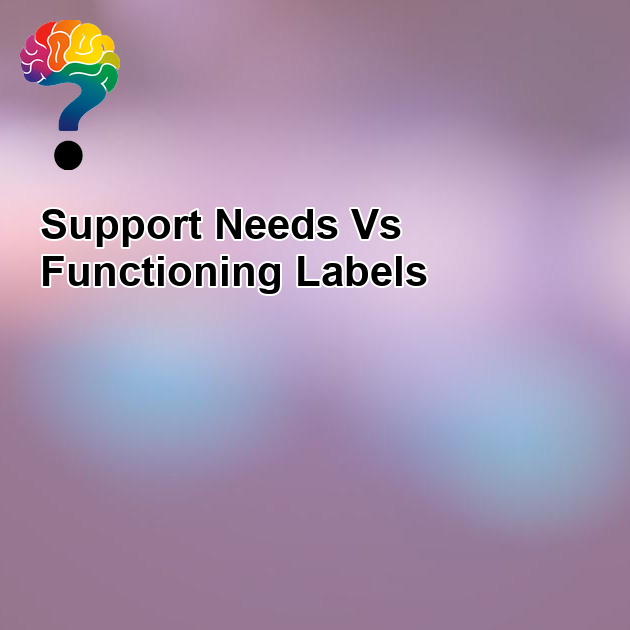
Beyond Labels: Embracing Individual Support Needs
-

Unveiling Therapy: Discover Your Path to Emotional Well-being
Common therapy types include cognitive-behavioral therapy, psychoanalytic therapy, and group therapy. In your sessions, expect to explore your feelings, reactions, and behaviors in a supportive environment.
-
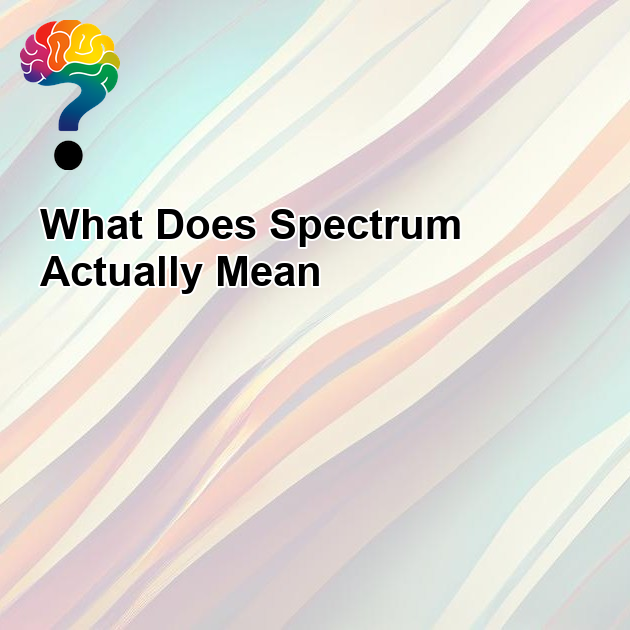
What does “spectrum” actually mean?
The term 'spectrum' encompasses a range of positions, opinions, or conditions. It initially described the array of visible light in physics, but now it illustrates the vibrant diversity in many areas of life.
-
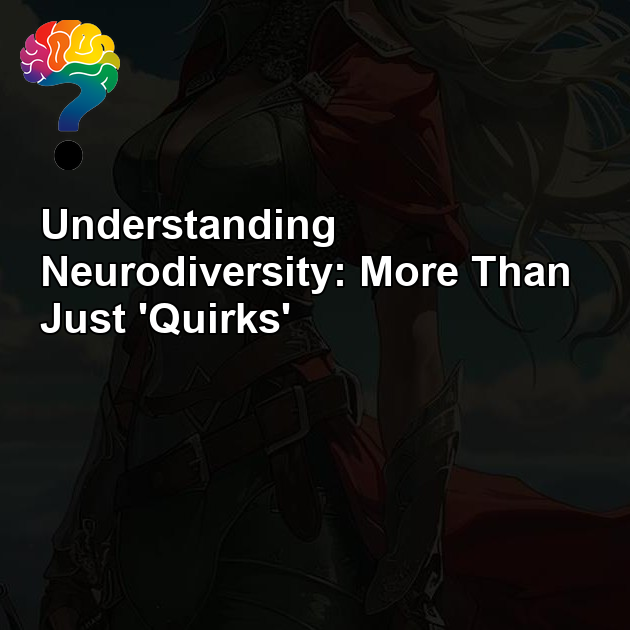
Understanding Why it’s not about “brokenness”
The concept of 'brokenness' is a misunderstanding in the neurodiversity movement. This movement seeks to recognize and celebrate neurological differences as natural and valuable variations of the human condition.
-
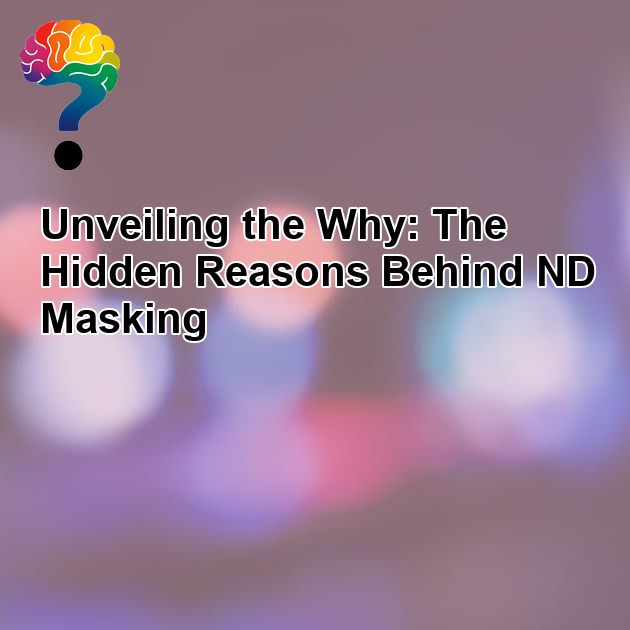
Understanding Why ND people may mask unconsciously
Many neurodivergent people often adapt unconsciously to blend into societal expectations or to steer clear of uncomfortable situations, sometimes without even realizing this adjustment.
-
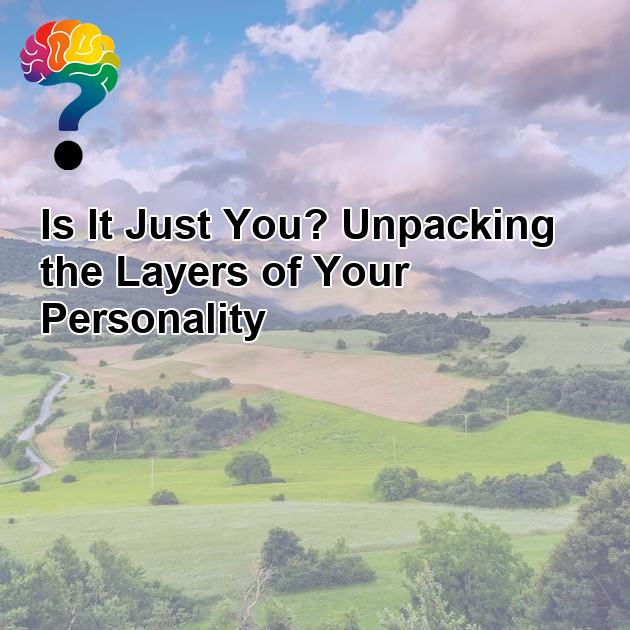
Is It Just You? Unpacking the Layers of Your Personality
-
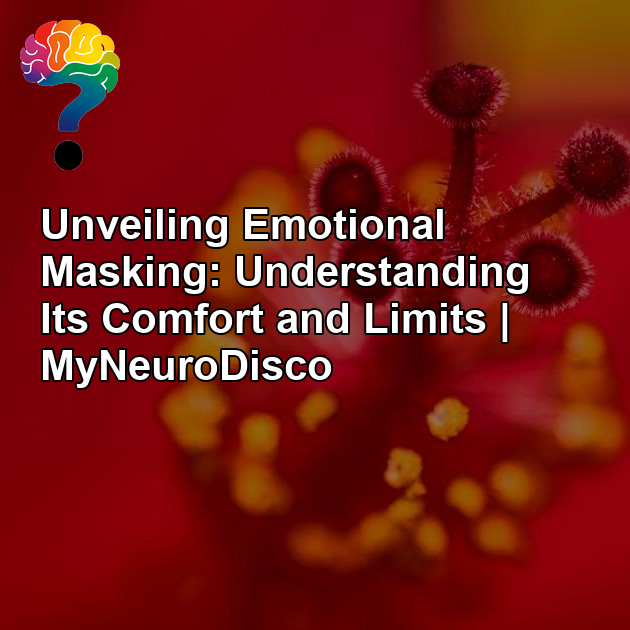
Unveiling Emotional Masking: "Understanding Its Comfort and Limits |" MyNeuroDisco
Emotional masking often serves as a temporary shield, helping us dodge discomfort by concealing our true emotions. While it might offer momentary peace, overuse can heighten stress, foster loneliness, and pose mental health challenges.
-
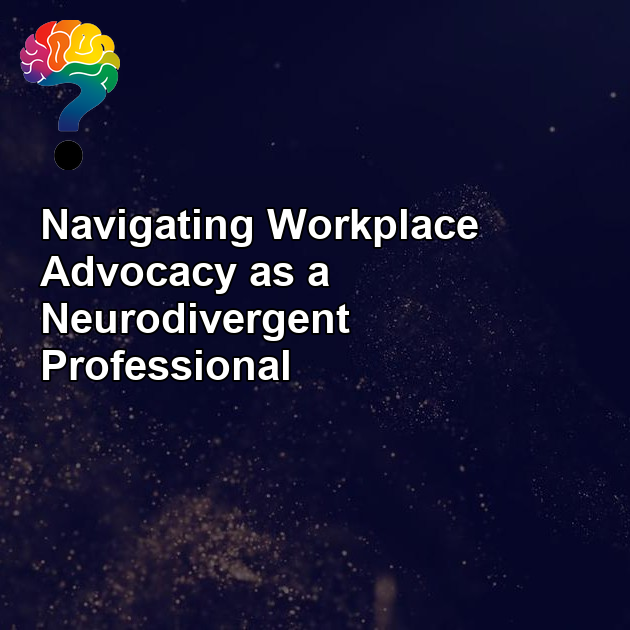
Navigating Workplace Advocacy as Neurodivergent...
Wondering how to champion your needs at work as a neurodivergent professional? Begin by recognizing your rights, crafting clear communication strategies, and nurturing supportive networks within your workplace.
-
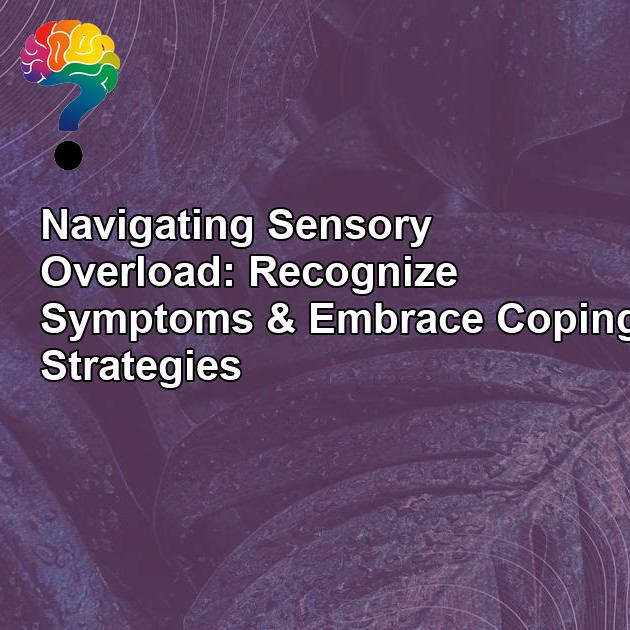
Navigating Sensory Overload: Recognize Symptoms & Embrace Coping Strategies
Sensory overload happens when our senses face more stimulation than they can handle. It often shows up as irritability, heightened anxiety, or a sharp sensitivity to noise. To cope, consider minimizing exposure to intense environments, trying soothing sensory activities, and consulting with a specialist who understands.
-
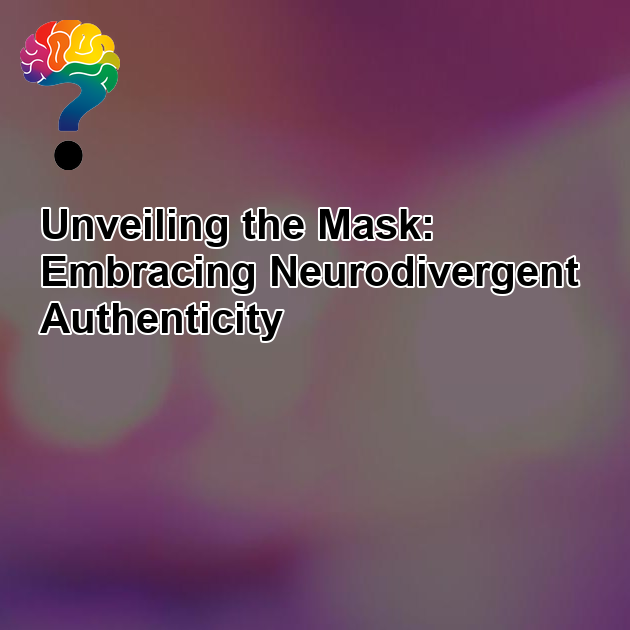
Unveiling the Mask: Embracing Neurodivergent Authenticity
Neurodivergent masking is the process where individuals with unique neurological patterns adapt their behavior to meet societal expectations.
-
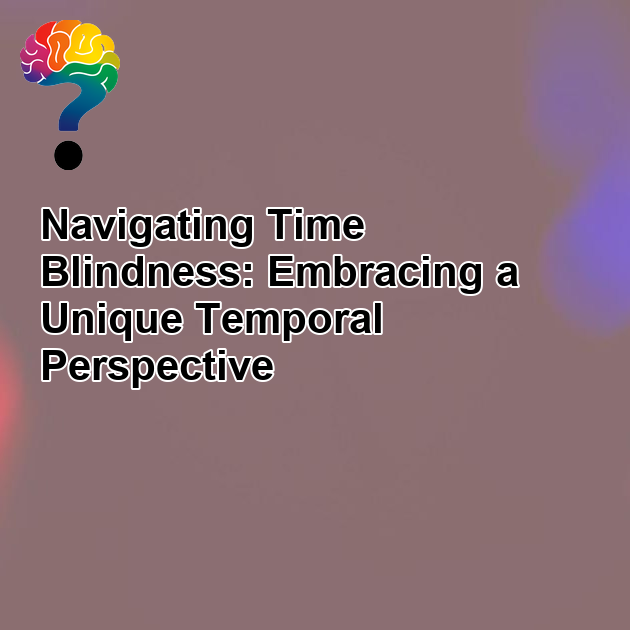
Navigating Time Blindness: Embracing a Unique Temporal Perspective
Time blindness is when someone experiences time in a unique way, making it challenging to manage daily tasks. It's often seen in individuals with ADHD.
-
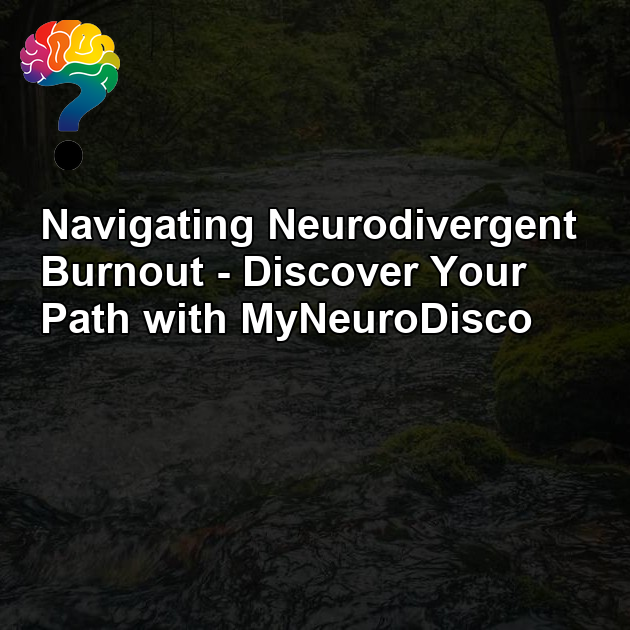
Navigating Neurodivergent Burnout - Discover Your...
Neurodivergent burnout can often feel like you're more sensitive to your surroundings, incredibly tired, finding social interactions harder, and struggling with daily tasks.
-
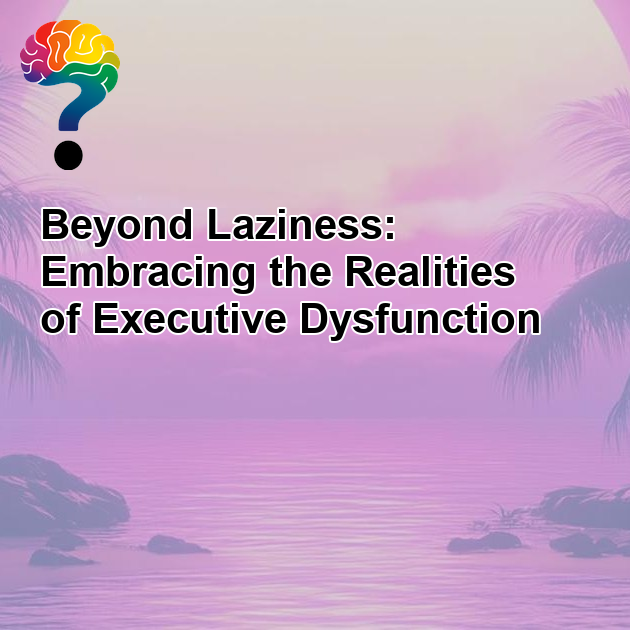
Beyond Laziness: Embracing Realities Executive
Executive dysfunction involves challenges in managing cognitive processes like planning, attention, and time management. Often misunderstood as laziness, it's actually about difficulty with task initiation and problem-solving.
-
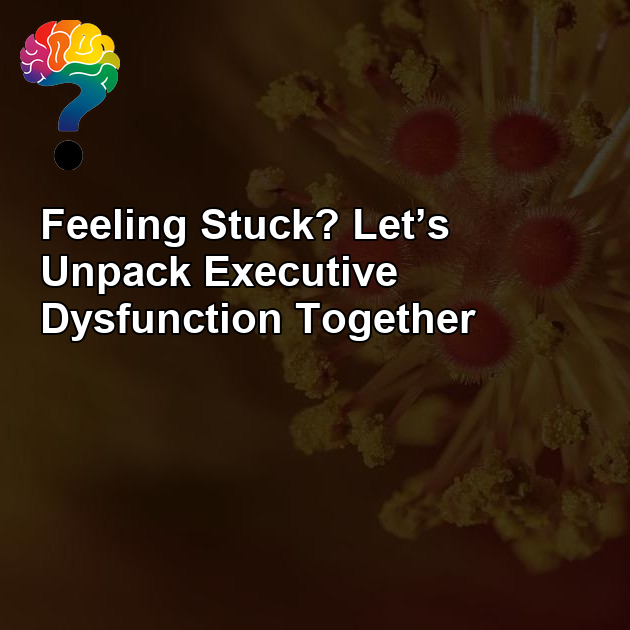
Feeling Stuck? Let’s Unpack Executive Dysfunction Together
Executive dysfunction can make planning, organizing, and managing time challenging. Often seen with conditions like ADHD and depression, it’s not just about willpower but about how the brain processes tasks.
